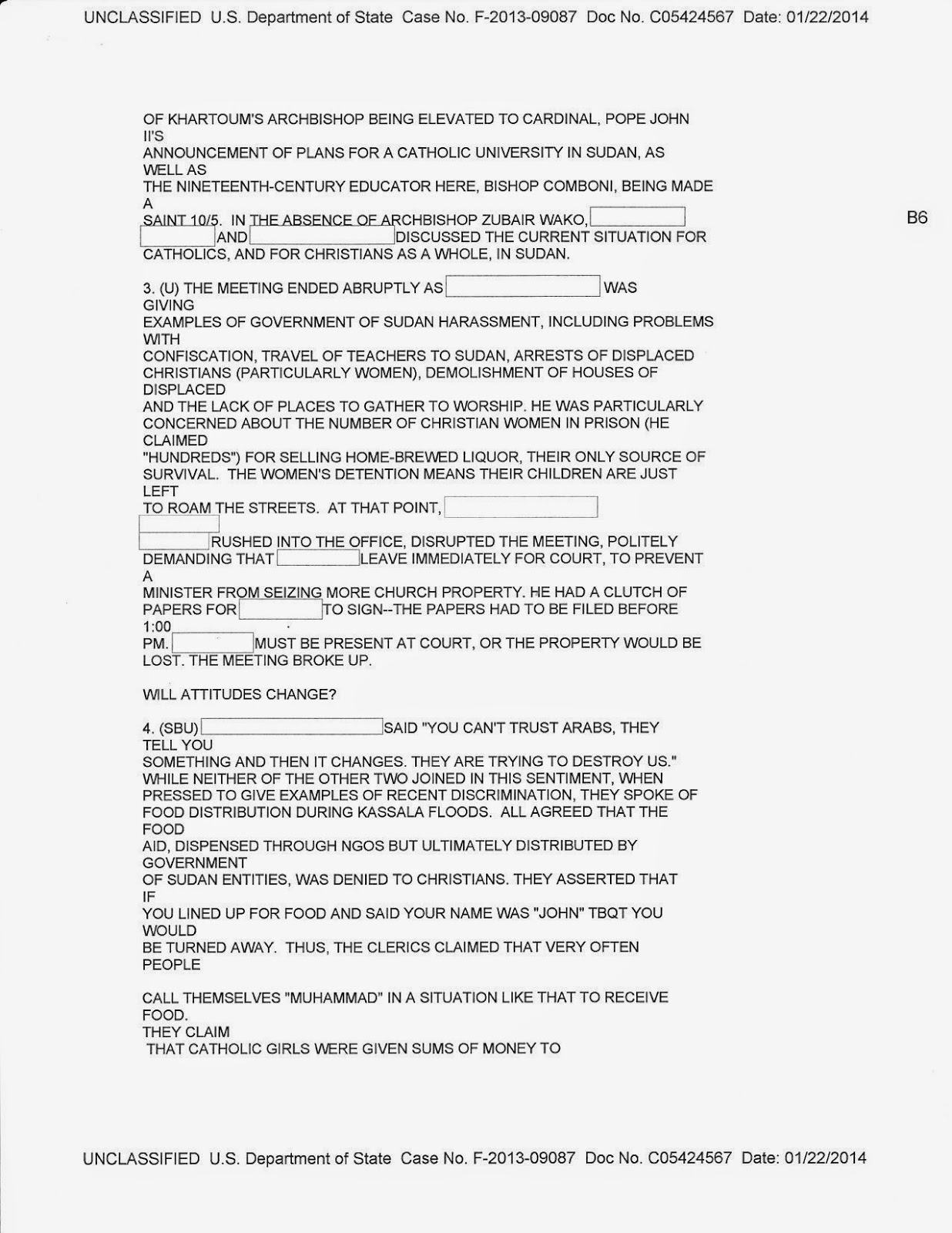Tonight I went
to a “Sophist Night” in old Omdurman. The occasion was to mark
the death of the founder of a school of Islamic jurisprudence who was
also the progenitor of the extended clan that traced their descent
back to him. A prominent human rights activist and secularist –
Ghazi Sulieman – was this year’s organizer of the celebration and
invited me. The sophists came out of a 9th
century movement within Islam to base one’s relationship to God on
reasoned knowledge of the Koran. Various schools of thought
developed over the centuries and there are many, many schools that
differ in ways that I’ll never understand. Sufism came from this
movement.
The
celebration took place outside and started at 8:30 pm. I was a bit
late but no matter and I was escorted to a place of honor and
supplied with drink and food throughout the evening. The field was
decorated like a country fair, with lights and a bandstand. But
there were no rides and the bandstand was for the speakers and
leaders of prayer. Rows of seats circled the stand but with a clear
space in front. Various people went to the microphone to make
speeches about the founding teacher (sheik), pray or chant. All
during the evening, groups from other schools came to pay their
respects (thus “Sophist Night”). As they arrived, Ghazi would
dance over to them with his ceremonial stick held high in his right
hand, pumping it up and down as he went. (The fist or stick pumped
this way while dancing by all the men to be greeted is the custom in
Sudan for important gatherings.) The group would then dance by “in
review.” They dressed colorfully – some all white, some green or
red – and usually had percussion sections. The schools reminded me
very much of the traditional samba schools of Brazil. And the
chanting often reminded me of blues music. Indeed, both the samba
schools, the blues and Sufi schools share a common African culture.
The Sudanese Sufi’s are Islamic by faith but African by impulse.
The Sudanese in prayer can barely refrain from dancing and some don’t
even try. I saw little children – it was a family get together
although the women sat on the side and did not take part in the
ceremonies – breaking into a spontaneous dance that clearly served
as precursor to the grownup version called worship. Once the schools
danced through, they went over to the side where some really got into
the spirit of things through chanting and dancing to their own music.
The
evening was warm but not oppressive and the people were very
friendly. Ghazi was dressed in his trademark white pants with blue
suit-jacket. His hair slanted upwards as usual and I often saw him
dancing with his stick in one hand and a cigarette in the other. Two
teenage girls (his daughters?) wore jeans and no head-coverings and
seemed to serve as his messengers, running here and there. At the
end of the ceremony, a small group of people gathered around me to
talk. One was a retired general who had trained in the U.S. in the
70s. Another was an opposition politician. Ghazi explained to me
that what I had seen that evening was Sudan’s “civil society”,
a people united by a shared faith that was their own, varied and
apolitical. He also explained that he had dressed in his suit to
make a point to the government that a secularist could be a sheik.
The small group I was with all agreed that the radicals who mixed
religion with politics have to go because they are “alien” to
Sudan. On Sophist Night, I could feel what they mean.


















